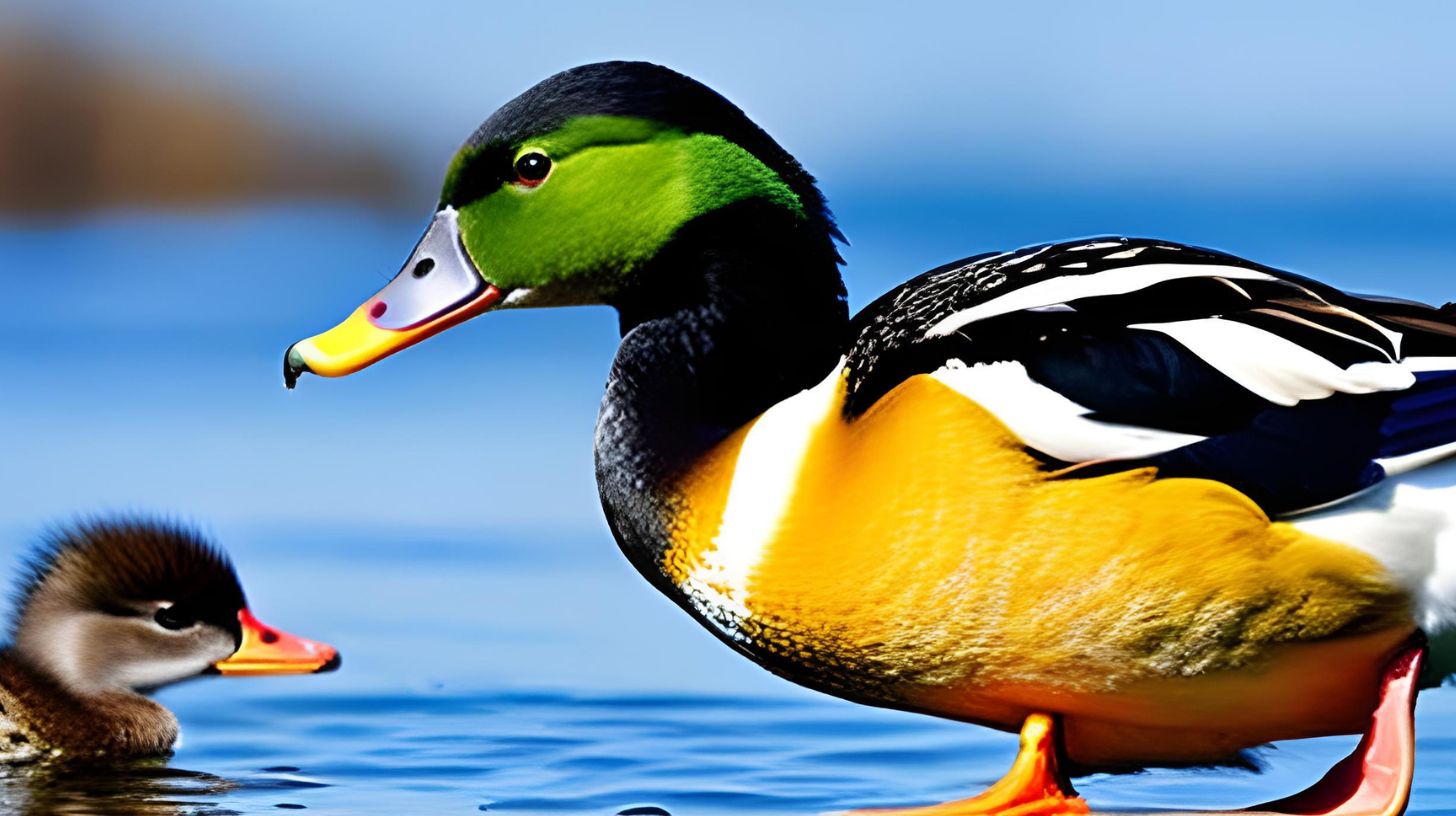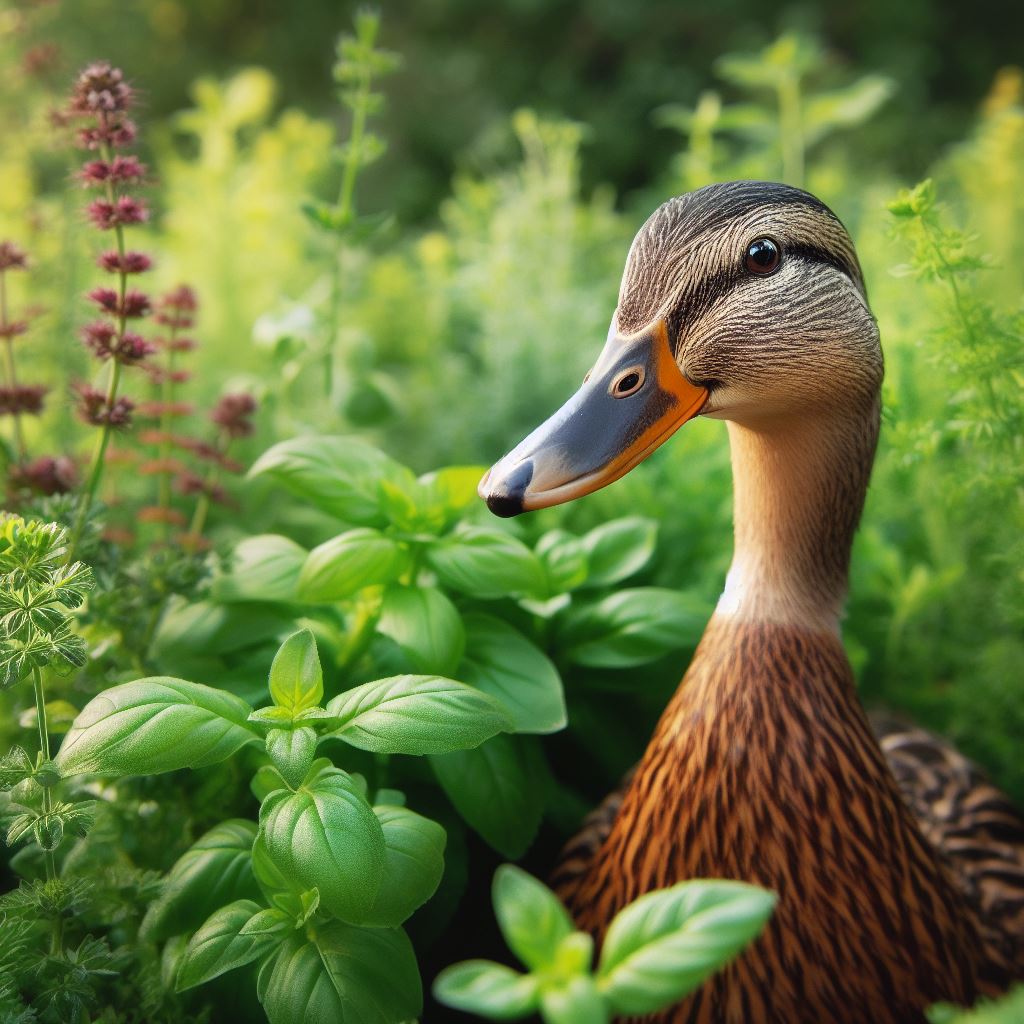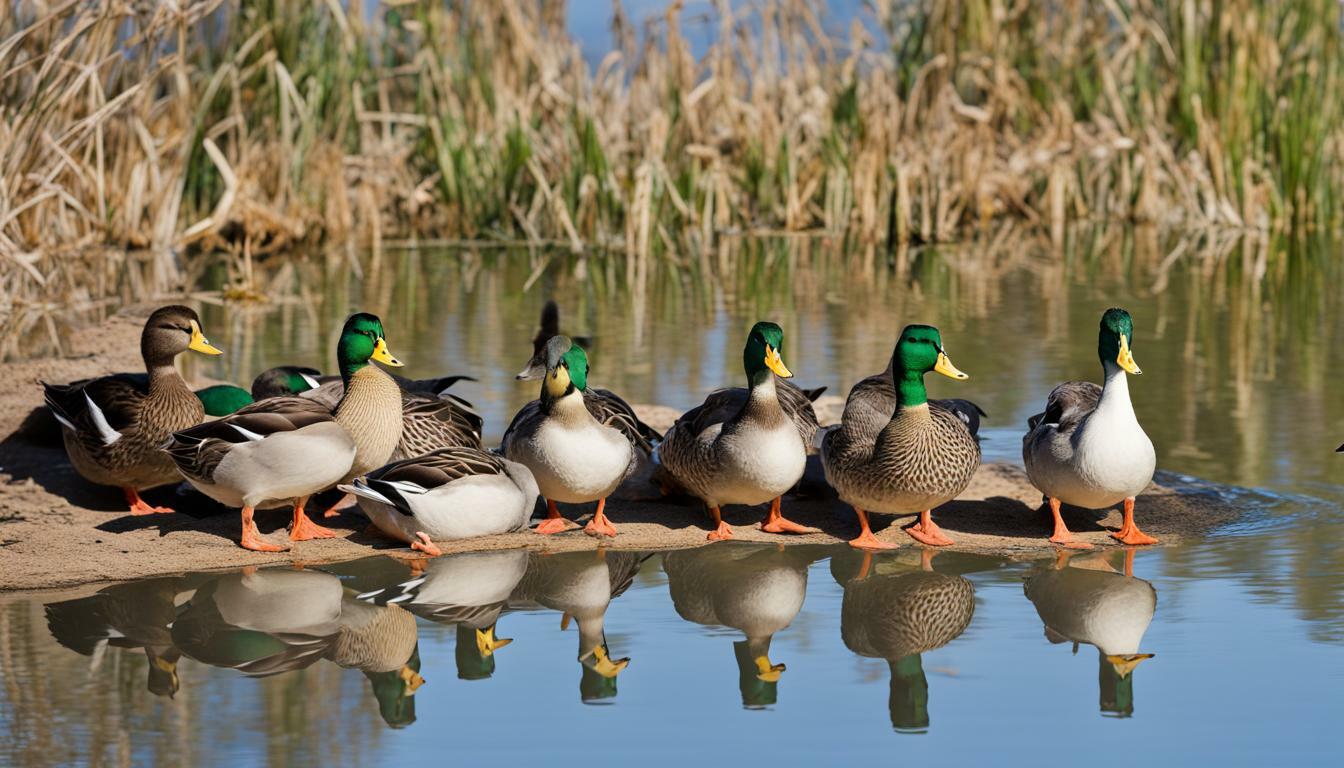Can Ducks Eat Fish Food? Duck Diet Guide

Table of content:
- Can Ducks Eat Fish Food? The Fact
- Risks of Feeding Ducks Fish Food
- How Much Fish Food Can Ducks Eat?
- Is Fish Food Safe for Ducklings?
- Preventing Ducks From Overeating Fish Food
- Can Wild Ducks or Ducklings Eat Fish Food?
- Best Diet and Foods for Pet Ducks
- Are There Any Fish Foods Safe for Ducks?
- Final Thoughts
Ducks and fish often share ponds and waterways. If you have both ducks and fish, you may wonder if it’s okay for your ducks to eat the same fish food that you feed your fish. There are some important considerations when it comes to feeding fish food to ducks. Keep reading to learn more about whether or not ducks can eat fish food, the risks, and how to safely allow ducks to have access to feed meant for your fish.
Can Ducks Eat Fish Food? The Fact
Fish food comes in several forms, including pellets, flakes, gels, frozen or freeze dried formats. Most ducks seem to prefer the semi-moist pellet style of feed. They will readily snack on fish pellets if given the chance.
So can ducks eat fish food safely? In small quantities, yes, ducks can eat fish food designed for koi, goldfish or other pond fish without immediate risk of toxicity or poisoning. However, fish food does not provide complete nutrition for ducks if fed as a primary diet.
Ducks have different nutritional requirements than fish. While an occasional fish pellet won’t hurt them, relying on fish food as their main diet can cause long-term health issues.
Risks of Feeding Ducks Fish Food
Feeding ducks fish food regularly or as their main diet carries some risks:
Nutritional imbalances – Fish food is formulated to meet the nutritional needs of fish, not ducks. It contains higher amounts of protein and lower fiber than what ducks naturally eat. Too much protein can stress ducks’ kidneys.
Digestive issues – A fish-based diet can cause digestive upset in ducks since they can’t properly break down and digest large amounts of fish food.
Angel wing disorder – Too much protein has been linked to angel wings in growing ducks. This is a deformity of the last joint in one or both wings.
Less natural foraging – Easy access to fish food reduces ducks’ natural foraging behaviors. This can lead to overeating and obesity.
Water quality issues – Excess fish food that ducks don’t eat pollutes the water with waste. This lowers oxygen levels and adds ammonia.
For these reasons, fish food should not make up the bulk of any duck’s diet. So what’s the right amount?
How Much Fish Food Can Ducks Eat?
A few fish pellets here and there will not harm healthy adult ducks. A good rule of thumb is to limit fish food treats to no more than 15-20% of their total daily food intake.
Feed fish food to your ducks in moderation by offering small amounts a couple times per week. Make sure they still have access to their normal duck food and natural foraging opportunities.
To encourage natural behaviors and a varied diet, sprinkle a few pellets on the ground or in the water instead of offering them from your hand in large handfuls.
Is Fish Food Safe for Ducklings?
Young ducklings have different nutritional needs than adult ducks. They require high protein levels to support rapid growth.
Commercial duckling starter feeds are designed to provide complete balanced nutrition for the first few weeks of life. Avoid offering fish food to ducklings under 4 weeks old. The protein and fat levels can be too high.
Once ducklings are 4-6 weeks old, a few fish pellets 2-3 times per week will not harm them as part of a varied diet. But duckling feed or crumbles should still make up the majority of their food.
Check with your duckling feed label or veterinarian for exact guidelines on when small amounts of treats like fish food may be introduced. Never allow very young ducklings free access to eat unlimited fish food.
Preventing Ducks From Overeating Fish Food
If your ducks have access to areas where you feed your pond fish, they will likely nibble on the food. Use the following tips to prevent ducks from overindulging:
- Feed fish in a separate guarded area that excludes ducks during feedings.
- Use sinking fish food rather than floating varieties that sit on the surface.
- Feed fish more than they can consume in 5 minutes so ducks can’t gobble up leftovers.
- Distract ducks with their own food in a different area while you feed fish.
- Use a wildlife deterrent around fish feeding areas.
- Feed fish smaller meals multiple times per day instead of large amounts.
- Choose fish foods with larger pellet sizes that ducks can’t easily eat.
With some creativity, you can allow ducks and fish to coexist in a pond environment without overfeeding the ducks with inappropriate foods.
Can Wild Ducks or Ducklings Eat Fish Food?
If wild ducks visit your pond to dine on the buffet of fish food, discourage this through the methods above. Wild ducks have ample access to natural food sources and do not require supplemental fish feed. They may initially be attracted to the easy meal but will move on when access is restricted.
For young wild ducklings, avoid making fish food available. Not only can the protein levels be dangerous for rapidly developing ducklings, but they may imprint on this unnatural food source. This could lead to issues like angel wing and malnutrition down the road.
Only offer tiny amounts of fish food to fully feathered juvenile wild ducks. Never let very young ducklings feed on anything but their natural diet.
Best Diet and Foods for Pet Ducks
While an occasional fish pellet won’t hurt, ducks should not eat fish food as their primary diet. Here is a quick look at the dietary needs of pet ducks:
- Duck starter feed – For ducklings under 4-6 weeks old. Provides 20-22% protein and proper nutrients.
- Duck grower feed – For young ducks 6-12 weeks old transitioning from starter feeds. Offers 16-18% protein.
- Duck maintenance ratio – For adult ducks over 12 weeks old. Provides 10-14% protein and proper fiber.
- Insects – Ducks relish occasional mealworms, crickets, grasshoppers, slugs and other insects, which offer natural protein.
- Greens – Chopped kale, spinach, swiss chard and herbs offer fiber and nutrients.
- Fruits and berries – Chopped melons, berries, grapes and other fruits make great treats.
- Grit – Offer insoluble grit to help ducks grind and digest fibrous foods.
For optimal health, feed quality duck feed appropriate for their life stage. Allow at least 20% of their diet to come from natural foraging activities. Limit fish food to occasional treats in small amounts 2-3 times per week at most.
Are There Any Fish Foods Safe for Ducks?
Most fish foods are fine for ducks in moderation but are not appropriate as primary diets. Some choices ducks may enjoy include:
- Medium pellet sizes – Avoid micro pellets meant for tiny fish or large pellets for koi or goldfish. Opt for mid-sized pellet formulas.
- Low protein varieties – Choose a fish food with 25-35% protein rather than 40% or higher to reduce the risk of excess protein.
- Gel or small cube foods – These tend to sink faster with less waste. Ducks can’t eat large amounts.
- Occasional treats – Any fish food is safe as an occasional treat a couple times a week.
There are no fish foods specifically made for ducks. Carefully check labels and feed appropriate duck rations for the majority of their diet.
Final Thoughts
Ducks and fish may cross paths in backyard ponds but have different nutritional requirements. With some basic precautions, you can allow ducks to snack on fish food occasionally without risking their health. Be sure to offer the right duck-specific feeds for the bulk of their diet and consider methods to restrict ducks’ access at fish feeding times. This will keep your feathered and finned pond companions both happy and healthy.
Welcome. I’m Adreena Shanum, the proud owner of this website, and I am incredibly passionate about animals, especially poultry. I founded adreenapets.com as a labor of love, stemming from my desire to share my knowledge and experiences with poultry enthusiasts worldwide.




